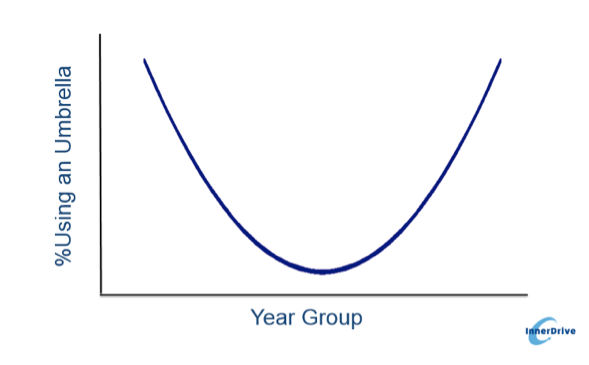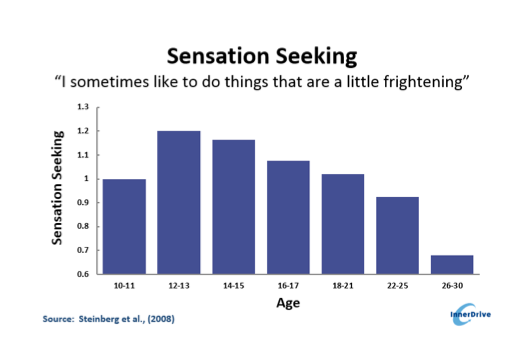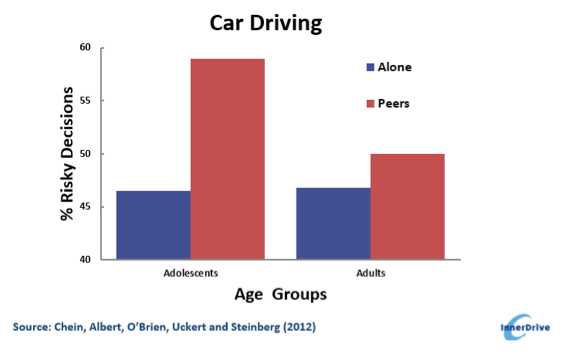Risky business: why teenagers are more likely to get wet in the rain
We were delivering a CPD session for teachers recently, and a storm started as we were leaving. While we were waiting for the rain to pass, one of the teachers commented that her students had a curious relationship with umbrellas. She noted that Year 7 students used them, as did sixth-form students, but those in the inbetween years often refused. Why would this be the case? The answer may lie in research from psychology and neuroscience.
The teacher commented that Year 7 students used umbrellas because they were told to. Sixth-form students, she suggested, used them to maintain their appearance and make sure they stayed looking good. But students from Years 8 to 11 wouldn't use them if their friends weren't using them to, and even would refuse to if they had one. They prefer to get wet and be part of the group. Essentially, the graph of umbrella use would look something like this:
What is happening here? For starters, we already know that teenagers like to take more risks than adults. A recent study asked people to rate how much they like to do frightening things. The differences in responses between the age groups is shown below:
So teenagers want to take more risks (especially in Years 8, 9 and 10). But that is not the whole story here. The teacher who made the comment about teenagers not using their own umbrellas pointed out that this happened when they were with friends who did not have umbrellas. They wanted to fit in with the group.
What does the research say about the effects of peer pressure and wanting to be part of the group during adolescent years? One study found that teenagers are very susceptible to the feelings that are associated with social exclusion. These researchers found that something as simple as being excluded in an electronic game with strangers has more impact on teenagers' mood than it does for adults.
Likewise, another study found that when completing a driving simulator game, teenagers were far more likely to make risky decisions if they were in the car with someone their own age, rather than an adult.
So there you have it. Teenagers want to take more risks. And this effect is magnified when they are part of a group and want to avoid social exclusion, even when they know that it may be an unwise decision. So don't be surprised if teenagers get wet in the rain – even if they have an umbrella.
Related Posts
Comments
By accepting you will be accessing a service provided by a third-party external to https://edcentral.uk/




